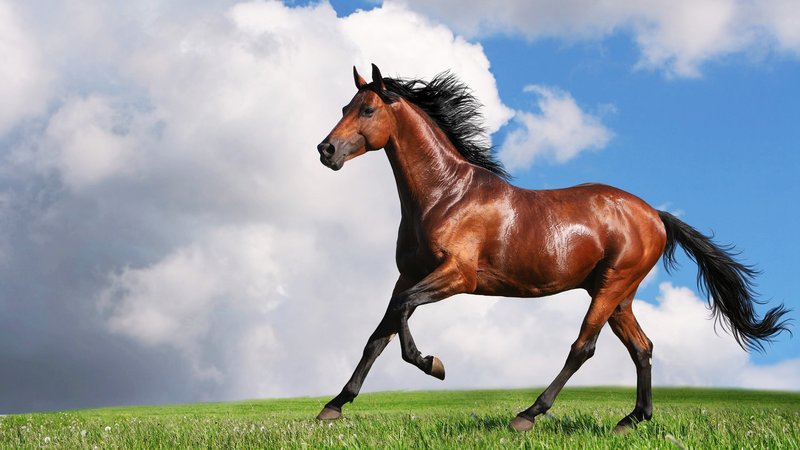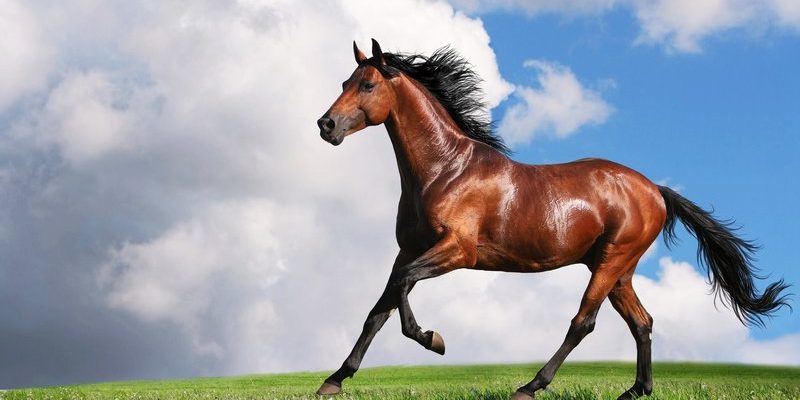
Horses have been companions to humans for thousands of years. They’ve played pivotal roles in transportation, labor, and even in warfare. But beyond their utility, horses have rich emotional lives and social structures. They communicate in ways that may surprise you. Let’s delve into some fascinating facts that showcase the complexity and charm of these incredible animals.
1. Horses Can Sleep Both Standing Up and Lying Down
You might be wondering how horses can manage to doze off while standing. Well, here’s the thing: horses have a unique system of tendons and ligaments in their legs that allows them to lock their joints. This ability enables them to rest while being ready to bolt if necessary—think of it as a built-in safety mechanism!
When a horse sleeps standing up, it’s usually in a light sleep state. However, for deeper sleep, horses prefer to lie down. You might catch a horse curled up in the grass for a nap, but they can only stay in that position for a limited time due to their size and weight. If they’re down for too long, it can be risky for their health.
So next time you see a horse standing peacefully, remember they could be catching some Z’s, all while keeping one eye on their surroundings!
2. Horses Have a Strong Herd Instinct
Horses are social animals and thrive in groups, just like humans do. In the wild, they form tight-knit herds, which provide safety and companionship. This herd instinct is deeply ingrained in their nature. You might notice how domestic horses often feel anxious or stressed when separated from their companions.
Being in a herd helps horses communicate and protect each other. They use a combination of sounds, body language, and even facial expressions to convey their feelings and intentions. For example, a horse can nicker to call its friends or use its ears to signal caution. It’s a beautiful dance of communication that highlights their social nature.
If you’re ever around a group of horses, take a moment to watch how they interact. It’s genuinely fascinating!
3. Horses Have Exceptional Memories
Ever heard the saying, “a horse never forgets”? While it might sound like a cliché, there’s some truth to it! Horses possess incredible memories, especially when it comes to recognizing other horses and humans. They can remember faces and places for years.
Research suggests that horses can form strong bonds with people and other animals, and they often recall those connections long after being apart. This is why a horse might behave differently around a familiar trainer or handler than a stranger. Their ability to remember can also be linked to their survival skills; knowing the layout of their territory or recognizing potential threats is vital in the wild.
So, when you build a relationship with a horse, know that it’s something they’re likely to remember.
4. Horses Come in Various Breeds with Unique Traits
Just like dog breeds, horses come in a wide range of breeds, each with its own distinct characteristics. From the elegant Arabian to the sturdy Clydesdale, there’s a horse for almost every purpose and personality.
Each breed was developed with specific traits in mind: some for speed, others for strength, and some for their gentle disposition. For instance, Thoroughbreds are well-known for their racing prowess, while Quarter Horses excel in agility and quick sprints.
When choosing a horse, it’s important to understand the breed’s traits and how they align with your goals—whether that’s competitive riding, leisure riding, or just companionship. There’s a fascinating world of equine diversity out there!
5. Horses Communicate Using Body Language
Horses are not just about whinnies and neighs; they have a rich vocabulary of body language. Their movements and postures can tell you a lot about how they’re feeling. For example, a horse with its ears back might be annoyed or defensive, while one with perked ears is usually curious and engaged.
You might notice a horse swishing its tail or stamping its foot when agitated. Understanding these signals is crucial for anyone working with or around horses. It helps in building trust and ensuring a safe interaction.
So, when you’re near a horse, pay attention to its body language. It can make a world of difference in how you connect with these magnificent animals.
6. Horses Can See Almost 360 Degrees
Have you ever noticed how a horse seems aware of everything happening around it? That’s because horses have large eyes set on the sides of their heads, which gives them an almost 360-degree field of vision. This wide-angle view helps them spot predators from afar—an essential trait for survival in the wild.
However, there’s a catch: horses have a blind spot directly in front of their noses and directly behind them. This means they might startle if you approach from behind without making noise.
Understanding a horse’s vision can help you interact with them safely. Always approach from the side where they can see you, and they’ll feel more at ease.
7. Horses Have Unique Gaits
Every horse has its own unique way of moving, and they can exhibit several gaits. The most common gaits are the walk, trot, canter, and gallop. Each has its own rhythm and speed, contributing to the horse’s overall personality and style.
– Walk: A four-beat gait, very steady and relaxed.
– Trot: A two-beat gait that’s faster than a walk but can be bumpy.
– Canter: A three-beat gait, smooth and graceful.
– Gallop: The fastest gait, often used in races.
Different breeds tend to excel in particular gaits. For instance, Tennessee Walking Horses are known for their smooth gaits, which makes them popular for riding. Understanding these gaits can help riders choose the right mount for their discipline, whether it’s dressage, jumping, or trail riding.
8. Horses Have an Amazing Sense of Smell
Horses have an incredible sense of smell, estimated to be thousands of times more sensitive than humans. This ability allows them to detect food, potential predators, and even other horses from quite a distance.
In the wild, a horse might rely on its sense of smell to discern safe grazing areas or to identify familiar individuals. This skill is particularly handy in social settings, as horses can recognize each other through scent, often even more reliably than through sight alone.
So, if you ever see a horse sniffing around, it’s likely gathering information about its environment. It’s one of the many ways these creatures navigate their world.
9. Horses Can’t Vomit
You might find this surprising, but horses have a unique digestive system that prevents them from vomiting. Their stomach is designed to keep food moving in one direction, which is a necessity for their grazing lifestyle. This means they eat small amounts throughout the day rather than large meals.
While this design is excellent for processing grass and hay, it does make them susceptible to certain digestive issues, like colic. Because they can’t throw up, it’s crucial for horse owners to monitor their diets and health closely.
Understanding this trait is vital for anyone caring for horses, as it emphasizes the need for proper nutrition and management.
10. Horses Can Develop Strong Bonds with Humans
Last but certainly not least, horses can form deep emotional connections with humans. Many horse owners report that their horses recognize them and react differently based on the relationship they’ve built. This bond can be mutual—horses can often sense their owner’s feelings and moods, responding with empathy.
Whether it’s a calm nuzzle or a playful attempt to engage, these interactions demonstrate the emotional intelligence of horses. It’s what makes working with them so rewarding. Horses can be wonderful companions, offering support and understanding in their own unique way.
In conclusion, horses are far more than just beautiful creatures that we ride or use for work. They’re social, intelligent, and emotionally rich beings with a world of fascinating traits. By learning these captivating facts, we can gain a deeper appreciation for these incredible animals and the relationships we share with them. So, whether you’re a seasoned rider or just a curious reader, there’s always more to discover about horses!

